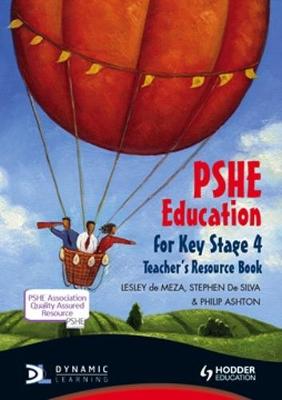
Pshe 2 Pupil's Book
No. of pages 64
Published: 2009
Add this book to your 'I want to read' list!
By clicking here you can add this book to your favourites list. If it is in your School Library it will show up on your account page in colour and you'll be able to download it from there. If it isn't in your school library it will still show up but in grey - that will tell us that maybe it is a book we should add to your school library, and will also remind you to read it if you find it somewhere else!
This book is part of a book series called Pshe .
There are 64 pages in this book.
It is aimed at Young Adult readers. The term Young Adult (YA) is used for books which have the following characteristics: (1) aimed at ages 12-18 years, US grades 7-12, UK school years 8-15, (2) around 50-75k words long, (3) main character is aged 12-18 years, (4) topics include self-reflection, internal conflict vs external, analyzing life and its meaning, (5) point of view is often in the first person, and (6) swearing, violence, romance and sexuality are allowed.
This book was published in 2009 by Hodder Education .
Marel Harper is a Development Officer for Curriculum for Excellence. Gail Whitnall is a Principal Teacher of Health, Food and Technology and has been seconded as a QIO for Health and Wellbeing. Stephen De Silva and Lesley de Meza are leading practitioners and trainers of PSHE at a UK and international level.
This book has the following chapters: CHAPTER 1 Starting Out 1. How will we work together? 2. What's it like here? CHAPTER 2 Emotional Health and well-being 3. What happens when we're feeling down? 4. Is it good being me? 5. Is anybody perfect? CHAPTER 3 Drugs 6. How do drugs affect people? 7. What about alcohol? CHAPTER 4 Sex and relationship education 8. Boys and Girls: Is there a difference? 9. Sex: Why all the fuss? 10. What are HIV and AIDS? 11. Is commitment important in relationships? CHAPTER 5 Minimising Harm 12. Social Networks - what do I need to know? 13. What can I do to keep safe? 14. How can I keep safe on the inside? CHAPTER 6 Living in the World 15. How can we contribute to family life? 16. How can we value each other? 17. How can we challenge prejudice and discrimination? CHAPTER 7 Saving and spending money 18. What influences our spending? 19. How can we save our money wisely? 20. How can we budget successfully? CHAPTER 8 Expressing myself 21. What are emotions and how are they expressed? 22. How should I respond to other people? 23. How can I become the best I can be? CHAPTER 9 Life strategies 24. How do I work on my own and with others? 25. What do I need to plan for? 26. What are my career and future opportunities? CHAPTER 10 Support and information 27. When and where can we get help? 28. Where can I find help on. ? 29. Young people's agencies: what do they do? CHAPTER 11 Review 30. What have I learned? Case studies for Lesson 14
This book is in the following series:



